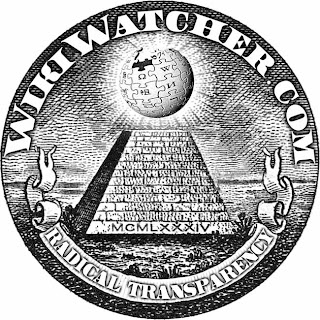From:
Wages at Wal-Mart are about 20% less than at other retail stores. Founder Sam Walton once argued that his company should be exempt from the minimum wage.
To:
The average wage at Wal-Mart is almost double the federal minimum wage (Wal-Mart). However, founder Sam Walton once argued that his company should be exempt from the minimum wage.
Walmart is not the only company that has been accused. Diebold, a voting machine company, deleted paragraphs questioning the company's integrity. Politicians have been known to switch and transpose words to cover up fault.

A man named Virgil Griffith designed a Wikipedia Scannerto help solve this problem. The scanner is suppose to track down I.P. addresses to the computer's location. Griffith hopes that this will solve the reliability problem. The only problem is that a person could easily access a "coffee house's" wifi and edit it untracble.

Knowing what I know now, I would not make the mistake of trusting Wikipedia again. Although, the site is suppose to be at least 85% accurate, that is 15% less than what I would trust. I would rather travel across town to the library and read an encyclopedia than lay back in my chair in front of the T.V. and surf the web.
Article: Scanner Tracks Who's Changing What on Wikipedia
Photo Credits:
Virgil Griffith
Wiki Scanner Logo

A few things:
ReplyDeleteWikipedia Scanner is not new, it has been around for two years. It's interesting, but I doubt that it has made much difference.
You only trust sources that are 100 % accurate? Good luck with that. I don't know any sources that are 100 % accurate. Some are obviously more accurate than others, but none are totally without errors. There are loads of websites and other sources that I will trust in most cases, but I can not guarantee that any of them are always right.
For Wikipedia, you may want to look into how it actually works. You may also want to search on Wikipedia in for instance Google Scholar, and read what researchers have found out about it. Some of those research papers are a bit out of date, but many of them give a more balanced view on Wikipedia than more or less random articles in the media, that in some cases are built on more hearsay than reliable facts.